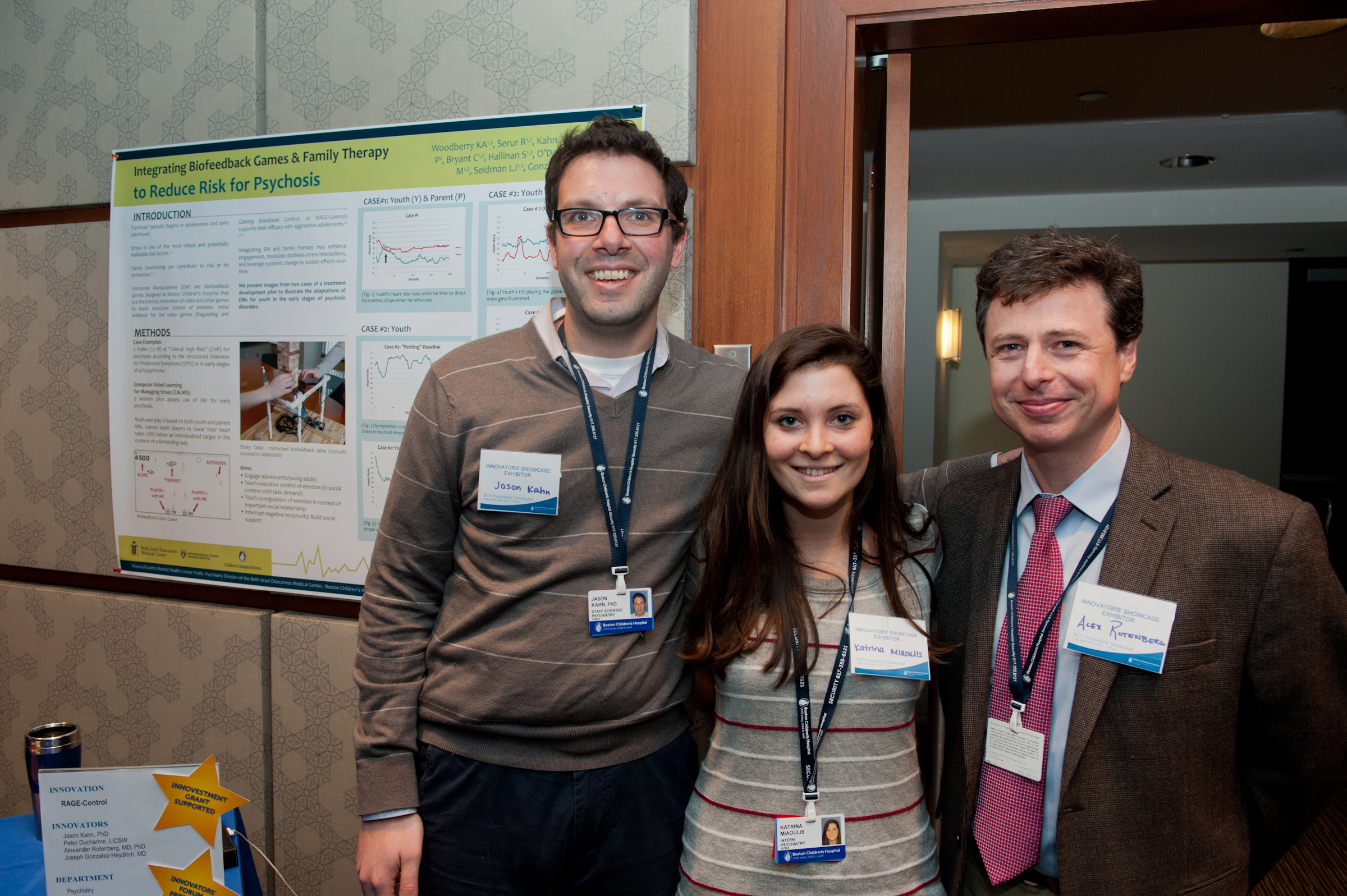
Joseph R. Madsen, MD, director of the epilepsy surgery program at Boston Children's, talks with the hospital's Chief Innovation Officer Naomi Fried on his 3D printing demonstration that can be used to print human spine and brain models. Photo: Katherine C. Cohen, Boston Children's Hospital

Michael Rich, MD, and Julie Polvinen in front of their Children's at Home platform, which, as Rich described, is "based on 20 years of research we've done giving sick kids camcorders and saying, 'teach us what it's like to live with your condition." The video platform has already taken off, and Rich and his team have seen impressive results. "Kids got better," he said. "Disease specific quality of life improved simply from shooting video about it." That's partly because the platform, in a sense, acts as a mirror allowing the children to almost see themselves in the third person and realize, "oh, I'm not really doing my medicine right, or I'm not following my diet," Rich pointed out. By bringing kids together who share a common disease, whether it be asthma, HIV or sickle cell disease, "there was this instant synergy that happened." Photo: Katherine C. Cohen, Boston Children's Hospital

Jason Kahn (left), Katrina Miaoulis and Alex Rotenberg, MD, stand in front of their RAGE-Control exhibit -- or regulate and gain emotional control -- a video game technology aimed at incorporating biofeedback games together with family therapy to reduce the risk for psychosis-related responses. Photo: Katherine C. Cohen, Boston Children's Hospital

Jason Kahn (right) demonstrates the RAGE-Control video game technology. The game teaches children to calm their emotions while also engaging their attention with stress stimulators. Photo: Katherine C. Cohen, Boston Children's Hospital

Developed by Annette Correia of Boston Children's Hospital and Leia Stirling of the Wyss Institute, this orthosis assists with thumb movement and allows for at-home rehabilitation for specific patients. Photo: Katherine C. Cohen, Boston Children's Hospital

Gajen Sunthara, principal software architect of Boston Children's Innovation Acceleration Program, donning his Google Glass surgical application for the crowd. The application allows for a surgeon to pull up patient data hands free and access the data via computer screen. Photo: Katherine C. Cohen, Boston Children's Hospital

Boston Children's David Casavant, MD, demonstrates his Telemedicine for Home Ventilated Patients platform. Using the platform intervention with secure video and teleconferencing abilities, just avoiding an ICU hospital admission for a single patient, the hospital was able to save $90,000. Photo: Katherine C. Cohen, Boston Children's Hospital

Research study coordinator Rutvi Vyas stands in front of the near infrared spectroscopy device used to detect perinatal brain injury. The project was spearheaded by Ellen Grant, MD, and Mari Franceschini. Photo: Katherine C. Cohen, Boston Children's Hospital

The 3D printer, part of Joseph R. Madsen's exhibit, can print a model in under an hour. He and his team are using 3D printing to develop noninvasive neurosurgical robots. Photo: Katherine C. Cohen, Boston Children's Hospital
























